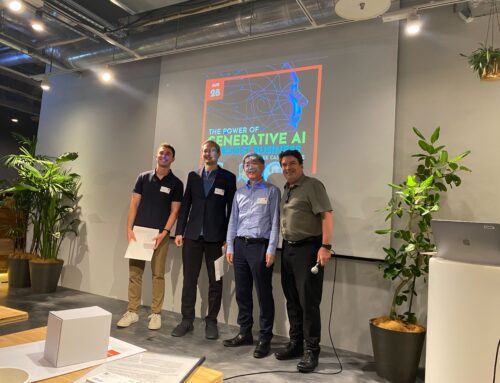Generative AI is not just changing retail – it’s redefining it.
Traditional artificial intelligence (AI) has been a game changer in retail thus far, offering a strategic methodology to tackle challenges and enhance operations. But the sector is once again on the cusp of a major transformation with the emergence of generative AI, signifying a move from merely understanding and categorizing data to actively creating new content and insights.
While traditional AI applications were primarily focused on data analysis and categorization, generative AI studies and learns from existing data trends so its applications are more targeted. This allows retailers to not only understand customer behavior, forecast demand, and manage inventory – the typical use cases for traditional AI – but also to adopt a more focused approach.
Generative AI offers retailers a variety of personalized and innovative applications. It can make new product designs by examining current market trends, consumer preferences, customer interactions, and historical sales data. It can automate content generation such as promotional materials, blog posts, and product descriptions to boost SEO and foster customer engagement.
It’s also making strides in personalized marketing by creating bespoke customer experiences through individualized marketing content and recommending new or alternative products based on buying history and preferences. Moreover, it bolsters the precision and accuracy of demand prediction and inventory adjustment for supply chain optimization and inventory management.
These applications not only elevate customer experience but also fuel sales and foster customer loyalty. Companies like Amazon and Best Buy have set the bar high with their recommendation engines, nudging the entire sector towards a more personalized approach. In fact, this degree of customization, once considered a lofty dream, is rapidly becoming a consumer expectation.
Retailers are therefore pressured to deliver personalization at scale to maintain uniformity in customer interactions and enhance operational efficiency. The scaling of AI solutions enables a unified strategy that incorporates a range of AI applications, from digital customer service bots to in-store virtual assistants, promoting a seamless omnichannel experience. Pioneers like Adobe and IBM are leading this transformation by harnessing AI and hybrid cloud innovation.
Looking ahead, it’s evident that the future of retail is firmly rooted in the intelligent application of AI to forge personalized, efficient, and responsive retail ecosystems. While traditional AI has so far helped retailers understand ‘what is’, generative AI will help retailers envision ‘what could be’. Retailers that embrace generative AI today will be primed to lead the new retail era.





